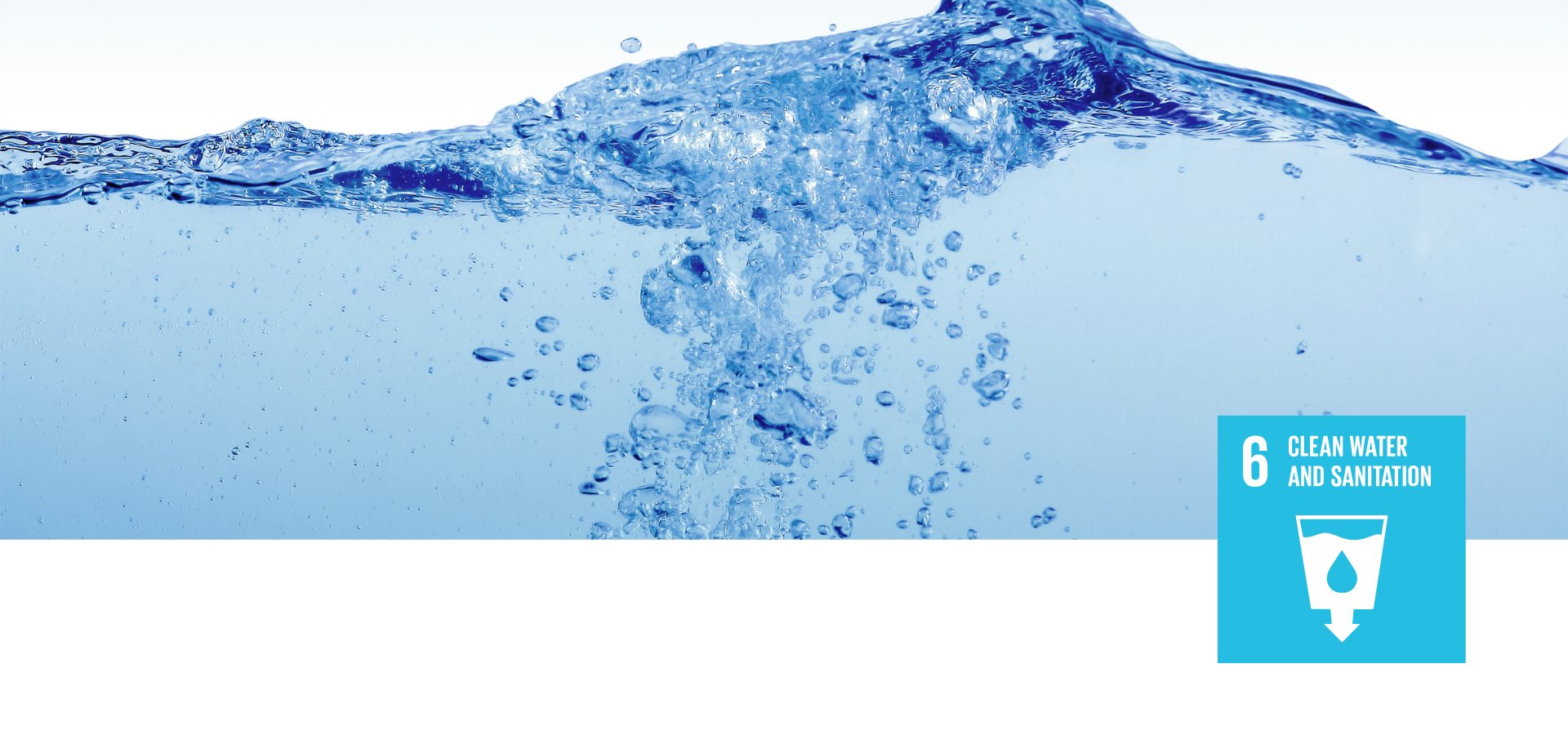
SDG 6: Clean Water and Sanitation
Through interdisciplinary research, education, and innovative initiatives, HKUST actively addresses water challenges and promotes responsible water usage. We include a comprehensive curriculum and encourage extensive research on water technology and resource management. We also implement sustainable practices on campus, prioritize the provision of clean drinking water, and launched various water conservation initiatives.
In 2022-23, our total water consumption was 507,161m3, annual cooling tower bleed-off reuse amounted to 16,366m3, and in 2022, it was 8,724m3. We also incorporate rainwater for irrigation and flushing. These efforts to track our water consumption and water reused , which help promote responsible water usage, optimize resource allocation, drive behavioral change, and inform decision-making, ensuring clean water and sanitation for all while promoting sustainable water practices.
Curriculum
65 related courses were offered in the 2021-22 academic year.
Research
From 2018 to 2022, HKUST published 383 research papers specifically related to SDG 6.
UROP
Under the Undergraduate Research Opportunities Program (UROP), the Lead contamination in high-rise building water supply systems project Investigated the complex interactions causing lead concentration in Hong Kong's water networks. By combining experiments, modelling, and material examination, the university aims to mitigate lead contamination and ensure safe drinking water while fostering responsible water usage and sustainable consumption.
Advanced Water Treatment Research
In 2021, Dr. Yin Ran, a 2020 PhD graduate from the Department of Civil and Environmental Engineering, has been recognized for his exceptional contributions in advanced water treatment. Dr. Yin’s research has filled crucial knowledge gaps, optimizing water treatment processes. The project is internationally recognized through numerous publications and active participation in the International Ultraviolet Association (IUVA) Young Professionals Committee.
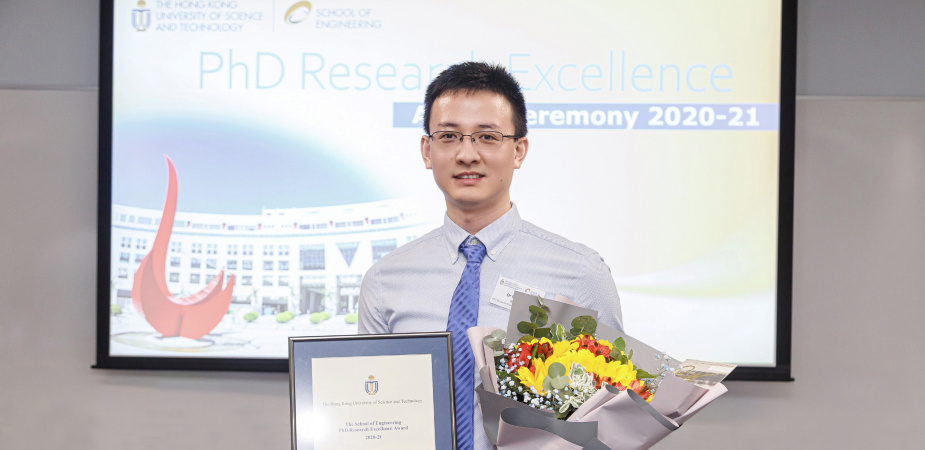
At the award ceremony, Dr. Yin Ran shared his rewarding experience in the engineering research journey at HKUST with other postgraduate research students.
HKUST Institute for the Environment
The Institute for the Environment (IENV) at HKUST focuses on water technology and resource management to address pressing issues related to water resources in Hong Kong, the Pearl River Delta region, and mainland China. IENV conducts interdisciplinary research to develop innovative solutions in areas like water and wastewater treatment technology, urban water resource management, micro-pollutant control, and the effects of rainwater and flooding on natural environments. The institute aims to contribute to sustainable development by advancing water technology and sound resource management practices. The research conducted by IENV has the potential for significant local and global impact in addressing water-related environmental challenges.
Policy
HKUST takes pride in its clean and safe drinking water supply, backed by government monitoring and adherence to international guidelines. With over 150 water fountains equipped with filters and UV disinfection systems across the campus, the university ensures the best quality water for its community. The Health, Safety, and Environment Office (HSEO) conducts regular monitoring and testing, while the Facilities Management Office (FMO) maintains and upgrades the fountains.
HKUST High Performance Building Standards & Guidelines prioritize water conservation and sustainability. Guidelines include using efficient toilets, avoiding potable water for landscaping, and repurposing condensate water from air conditioning systems for irrigation or other uses, promoting water efficiency and environmental responsibility.
HKUST has strict regulations on the disposal of hazardous materials and liquid effluent. The Disposal of Hazardous Materials and Items under Regulatory Control stated our strict regulations for the disposal of hazardous materials such as chemical, radioactive, and biological wastes. In terms of Liquid Effluent, HKUST follows environmental standards set by the Environmental Protection Department, conducts regular monitoring and analysis, and prohibits the disposal of hazardous materials into the sewer system. These Guidelines aims to protect water resources and the environment, and prevent contaminations from entering water bodies, safeguarding water quality, ensuring access to clean water and sanitation for everyone.
Water Saving System Upgrade
HKUST has upgraded our central chiller plant into a district cooling system which resulted in significant cost and energy savings. By adopting seawater-cooled central chilling and expanding the capacity of the plant instead of constructing a new system, HKUST increased efficiency and reduced our carbon footprint. The upgrade saved annual energy consumption, reduced operation costs, and reused waste heat, aligning with HKUST's commitment to sustainability and its goal of reducing energy consumption by 15% by 2028.
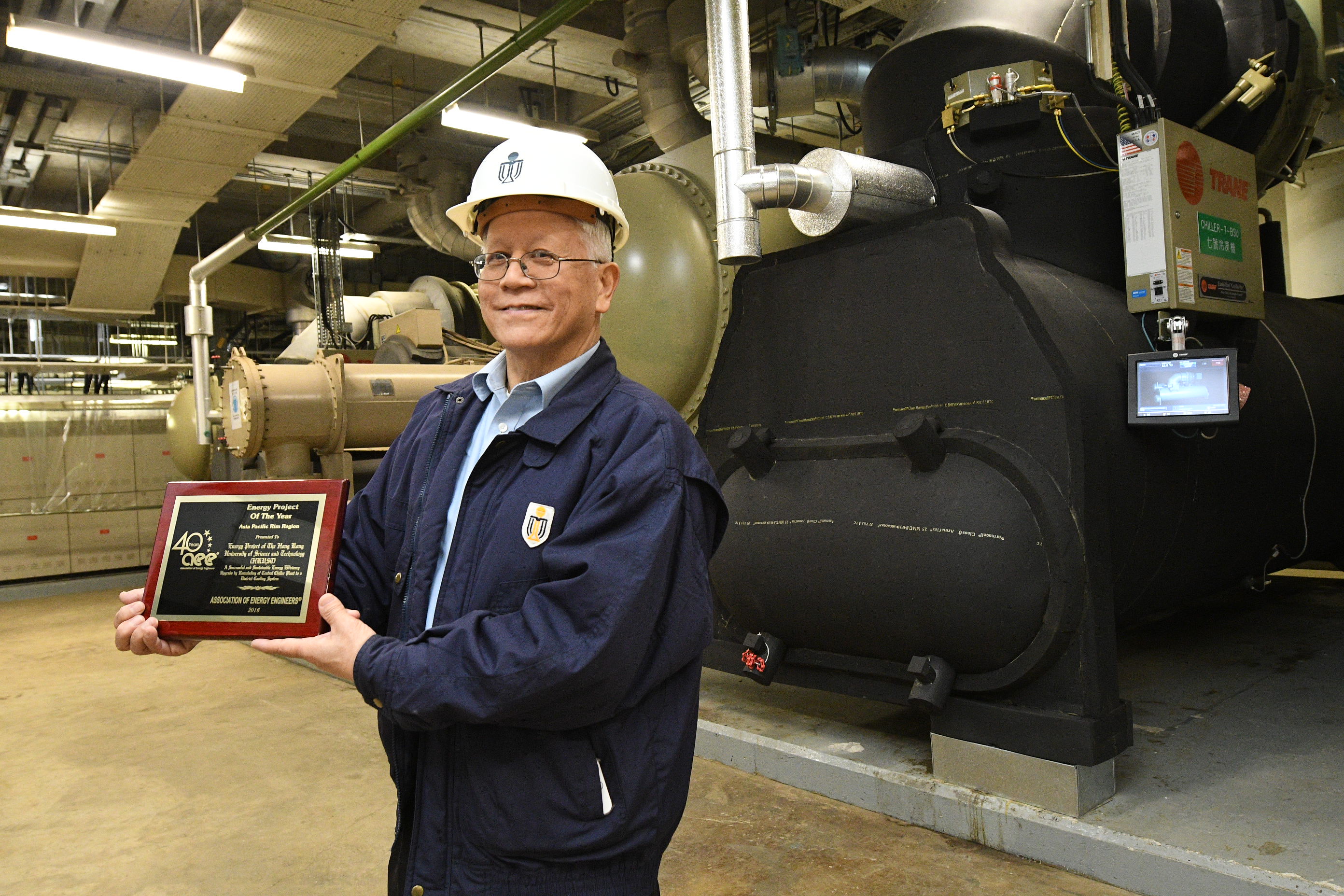
Mr Lam Kin-lai, Associate Director of HKUST’s Facilities Management Office, presents the award in front of a new chiller.
Public Education
HKUST, as the project management office of the Jockey Club Sustainable Campus Consumer Program (JCSCCP), launched the Water-Saving Smart Showerhead Program in eight universities with the aim to reduce per capita water consumption by 5%. The showerheads have an integrated water-powered LED light that changes color based on water usage. With a design that cuts water consumption by 26%, the showerheads promote responsible water consumption. A real-time water consumption dashboard will be implemented to raise awareness and encourage student engagement, including challenges and rewards for water-saving halls.
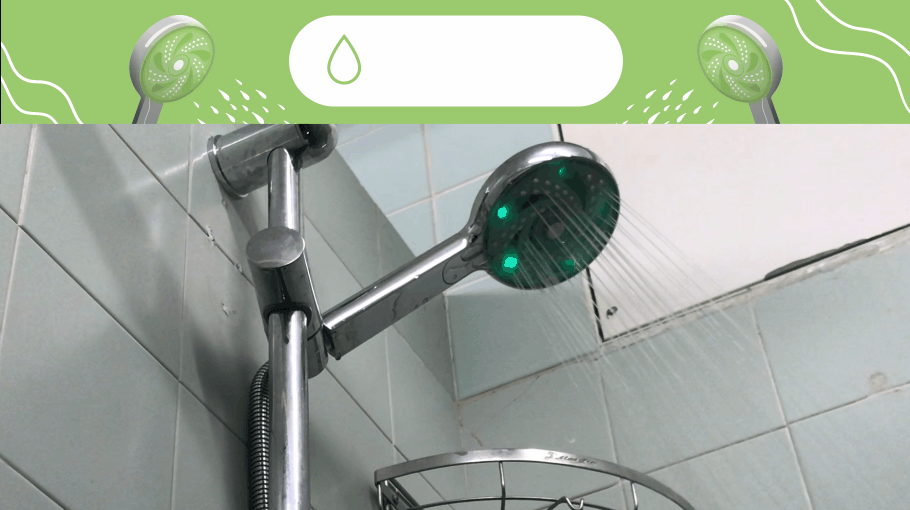
Cutting water consumption to as little as 6.6L per minute, the showerheads’design is extremely water-efficient. The quoted figure is roughly 26% less than conventional shower units rated Grade 1 by the Hong Kong Water Supplies Department's Water Efficiency Labelling Scheme.
The HKUST Water Resources Lab Visit, co-organized by the "Academy for Bright Future Young Engineers" and the Department of Civil and Environmental Engineering, offers an opportunity to explore two key aspects. Participants will visit the water lab to learn about the innovative use of waves to conserve water and energy. Additionally, they will visit the Smart Water Network project on campus, where waves have led to the development of novel technology.
Sustainable Smart Campus as a Living Lab
Through the Sustainable Smart Campus as a Living Lab (SSC) initiative, the Urban Spring Smart Hub project was developed to enhance drinking water facility management and raise water quality awareness by integrating with 50 water dispensers. By collecting data for efficient management and displaying information on saved bottles and water consumption through public dashboards, the Smart Hub encourages environmental consciousness.
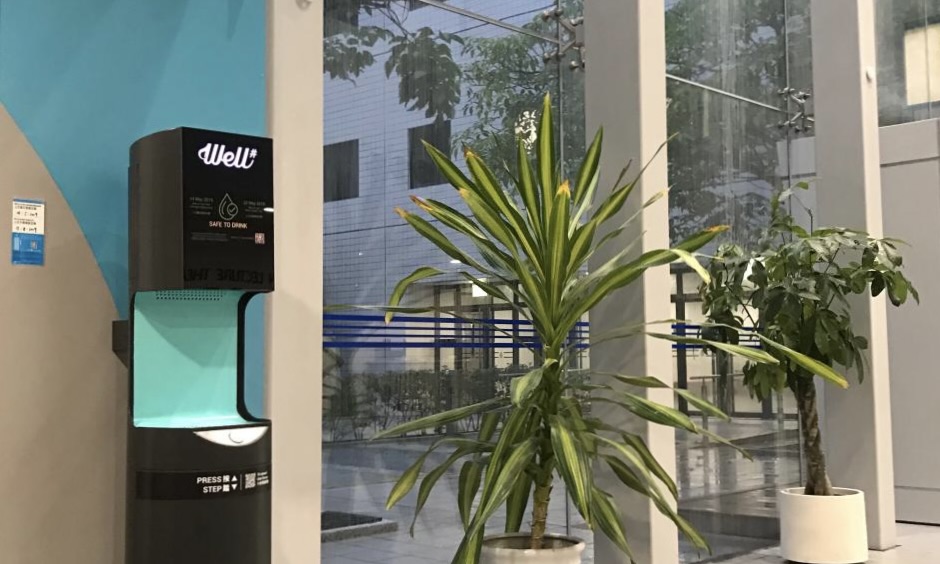
Urban Spring Smart Water Filling Station on Campus